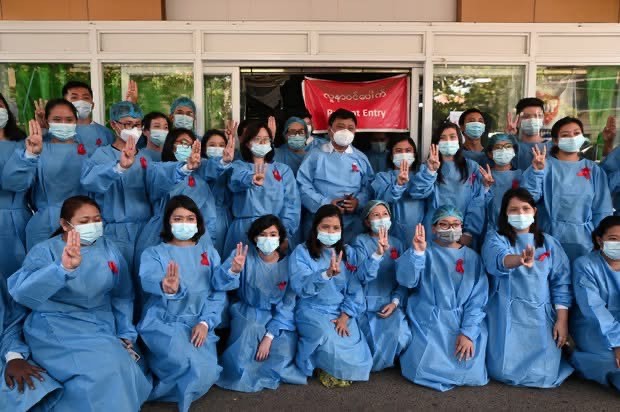The National Unity Consultative Council (NUCC)’s recommendations for protecting Civil Disobedience Movement (CDM) staff are not effective in practice, according to CDM employees.
On September 8, the NUCC urged revolutionary organizations to prioritize and implement nine measures to protect CDM staff who joined the non-violent movement against the junta.
Four years after the coup, the lives of CDM employees, both inside and outside the country, remain unstable. They face serious difficulties with food, shelter, livelihoods, and personal security.
A CDM teacher said that issuing statements without concrete support is meaningless.

“They just release statements, but nothing changes. Who can really protect us if something happens? Inside the country it is worse, everyone lives in fear and must keep moving from place to place,” she said.
Most CDM staff still in Myanmar are under surveillance and forced to relocate frequently, creating hardships not only for daily survival but also for travel.
Another staff member said many CDM workers rely on odd jobs to survive.
“Financial support is not regular. Some have to give tuition or sell things to manage. We used to receive something, but for those inside the country, it’s been years without any help,” she said.
Since the start of the Spring Revolution, CDM staff have sacrificed their jobs, family security, and freedom to continue resisting the junta. Many university professors, office workers, health workers, and doctors fled to Thailand to avoid arrest.
CDM advocacy groups estimate that around 200,000 government employees left their jobs in protest of the 2021 coup.
Meanwhile, the junta commission, which continues to arrest and kill civilians daily, has repeatedly invited CDM staff to return to work, but they have shown no interest.
